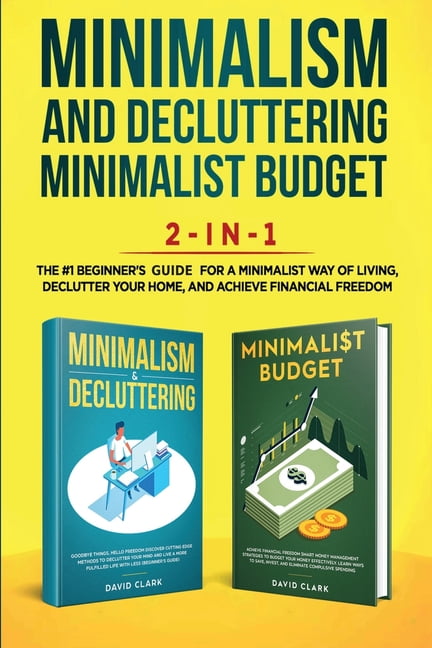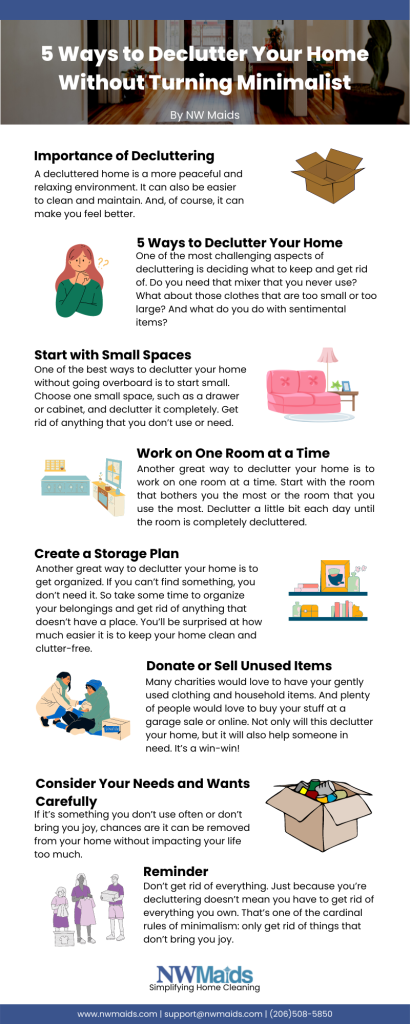
Have you ever found yourself overwhelmed with piles of bills, receipts, and financial paperwork? It’s a common occurrence, but did you know that embracing minimalism can actually help declutter your finances? Minimalism isn’t just about organizing your physical space; it’s also about simplifying and streamlining your financial life. By adopting a minimalist mindset, you can prioritize what truly matters, cut out unnecessary expenses, and focus on achieving your financial goals. In this article, we will explore how minimalism can revolutionize your approach to money and ultimately lead to a more peaceful and prosperous financial future. So, get ready to declutter your finances and discover the freedom that minimalism can bring.
Table of Contents
Understanding Minimalism and its Connection to Finances
Defining minimalism
Minimalism is a lifestyle that focuses on living with less, both in terms of physical possessions and mental clutter. It is about simplifying your life, removing distractions, and prioritizing what truly matters to you. When applied to finances, minimalism is about being intentional with your money and making conscious choices to align your spending with your values and priorities.
Exploring the principles of minimalism
The principles of minimalism revolve around simplicity, intentionality, and mindfulness. Simplifying your life allows you to focus on what truly brings you joy and fulfillment, rather than being burdened by excessive belongings or financial obligations. Being intentional with your spending means carefully considering each purchase and ensuring it adds value to your life. Lastly, practicing mindfulness helps you cultivate a deeper understanding of your relationship with money and encourages conscious decision-making.
Recognizing the impact of minimalism on finances
Embracing minimalism can have a profound impact on your financial well-being. By decluttering your finances, you can reduce stress, gain control over your money, and create a solid foundation for future financial success. Minimalism encourages you to assess your financial situation, establish clear goals, simplify your expenses, reduce debt, optimize your financial accounts, streamline your records, automate your finances, and evaluate your material possessions and consumerist habits. Each of these steps plays a crucial role in achieving financial freedom and peace of mind.
Assessing Your Financial Situation
Evaluating your current financial state
To take control of your finances, it is essential to evaluate your current financial state. Start by calculating your net worth – the difference between your assets and liabilities. This gives you a snapshot of your overall financial health. Additionally, closely examine your income, expenses, debts, and savings to gain a deeper understanding of your financial habits and patterns.
Identifying financial clutter
Financial clutter refers to unnecessary financial commitments, unused accounts, subscriptions, or excessive expenses that drain your resources without providing adequate value. Identifying and eliminating financial clutter is essential to simplify your financial life and create space for more meaningful financial goals.
Understanding the consequences of financial clutter
Financial clutter not only impacts your financial health but also your overall well-being. It can lead to unnecessary stress, make it difficult to track your expenses, hinder your ability to save, and prevent you from reaching your financial goals. By recognizing and addressing financial clutter, you pave the way for a clearer and healthier financial future.

This image is property of i5.walmartimages.com.
Establishing Financial Goals
Defining your financial objectives
Before starting your journey towards financial freedom, it is crucial to define your financial objectives. Set clear and achievable goals that are aligned with your values and priorities. Whether it is saving for retirement, buying a home, or funding your child’s education, having specific goals provides direction and motivation.
Creating a budget
Creating a budget is a fundamental step in managing your finances effectively. Start by listing your income sources and all necessary expenses. Then, allocate a portion of your income towards savings and debt repayment. Regularly reviewing and adjusting your budget ensures that you are on track to achieve your financial goals.
Setting savings targets
Saving is an essential aspect of financial well-being and unlocking future opportunities. Set monthly or yearly savings targets to support your financial goals. Whether it is an emergency fund, a travel fund, or saving for a major purchase, having specific targets helps you stay focused and motivated.
Simplifying Your Expenses
Analyzing your spending habits
Take a close look at your spending habits to identify areas where you can make adjustments. Are there any recurring expenses that you can reduce or eliminate? Are there non-essential items that you can cut back on? Analyzing your spending habits allows you to be more intentional with your money and avoid wasteful expenditures.
Eliminating unnecessary expenses
Once you have identified unnecessary expenses, take steps to eliminate them. Cancel subscriptions or services that you no longer use or find value in. Consider cutting back on dining out or entertainment expenses. By trimming unnecessary expenses, you can allocate more resources towards your financial goals.
Avoiding lifestyle inflation
Lifestyle inflation occurs when your expenses increase alongside your income, often resulting in little to no progress towards your financial goals. Avoiding lifestyle inflation involves consciously resisting the urge to upgrade your lifestyle whenever you receive a raise or promotion. Instead, focus on maintaining a balance between your expenses and your income, allowing you to save more and make meaningful progress towards your financial objectives.

This image is property of thetinylife.com.
Reducing Debt and Interest Payments
Assessing your debt load
To achieve financial freedom, it is crucial to assess your debt load. Make a list of all your debts, including credit card balances, student loans, and mortgages. Calculate the total amount owed and the corresponding interest rates. This assessment provides a clear picture of your debt and helps you prioritize your repayment strategy.
Creating a debt repayment plan
Once you have assessed your debt load, develop a debt repayment plan. There are two common approaches – the debt avalanche and the debt snowball method. The debt avalanche involves prioritizing debts with the highest interest rates, while the debt snowball approach focuses on paying off the smallest debts first. Choose the method that aligns best with your financial goals and motivates you to tackle your debt.
Consolidating high-interest debts
Consolidating high-interest debts can be an effective strategy to reduce interest payments and simplify your repayment process. Consider transferring high-interest credit card balances to a card with a lower interest rate or consolidating multiple loans into a single loan with a lower interest rate. This way, you can streamline your debt repayment and potentially save money on interest payments.
Optimizing Your Financial Accounts
Consolidating bank accounts
Having multiple bank accounts can lead to increased fees and confusion. Consider consolidating your accounts to simplify your finances. Maintain a single checking account for daily expenses and savings accounts for specific financial goals. This consolidation streamlines your banking, making it easier to track and manage your funds.
Closing unused credit cards
Unused credit cards not only clutter your financial record but also pose a risk of identity theft. Close any credit cards that you no longer use or need. Be mindful of their impact on your credit score, but prioritize simplifying and securing your financial accounts.
Researching and switching to high-interest savings accounts
If you have savings accounts with low-interest rates, research alternative options that offer higher rates. Switching to high-interest savings accounts allows you to maximize the growth of your savings and earn more from your money. Consider online banks or credit unions that often offer competitive rates.

This image is property of barefootminimalists.com.
Streamlining Your Financial Records and Documentation
Digitizing and organizing financial documents
Go paperless by digitizing your financial documents. Scan and store important documents such as tax returns, bank statements, and investment records on a secure cloud-based platform. This digitization reduces physical clutter and makes it easier to access and retrieve information when needed.
Implementing a filing system
Create a filing system for your digital and physical financial records. Label folders or use digital tags to categorize different types of documents, such as tax-related, investment-related, or insurance-related. This organization ensures that you can quickly locate and retrieve any necessary information and simplifies record-keeping.
Ensuring secure backup of financial records
Ensure the security of your financial records by regularly backing them up. Utilize cloud-based storage or external hard drives to prevent data loss due to accidents or technology failures. Regularly review and update your backup system to maintain the security of your financial information.
Automating and Simplifying Your Finances
Setting up automatic bill payments
Automating bill payments is an effective way to simplify your finances and avoid late payment fees. Set up automatic payments for recurring bills such as utilities, rent or mortgage, insurance premiums, and subscription services. This automation ensures that your bills are paid on time, saving you time and reducing the risk of missed payments.
Using budgeting and money management apps
Take advantage of budgeting and money management apps to simplify tracking and managing your finances. These apps allow you to categorize your expenses, set budget limits, and receive notifications about upcoming payments. By utilizing technology, you can streamline your financial management and gain a clearer understanding of your financial habits.
Simplifying investment strategies
Investing can be overwhelming, but simplifying your investment strategies can make it more manageable. Consider investing in low-cost index funds or exchange-traded funds (ETFs) that provide broad market exposure. Automate your investment contributions through regular deposits into your investment accounts. By simplifying your investment approach, you can focus on long-term growth and reduce stress associated with complex investment decisions.

This image is property of static.houselogic.com.
Evaluating Your Material Possessions and Consumerist Habits
Determining needs versus wants
To embrace minimalism in your purchasing decisions, it is essential to distinguish between needs and wants. Before making a purchase, ask yourself if the item is necessary or if it simply fulfills a fleeting desire. By shifting your focus towards fulfilling genuine needs, you limit excessive spending and reduce clutter in your life.
Implementing minimalism in your purchasing decisions
Adopting minimalism in your purchasing decisions involves being intentional and mindful about each purchase. Consider the longevity and functionality of the item, as well as its value in relation to your financial goals and overall well-being. Emphasize quality over quantity, and prioritize experiences and relationships over material possessions.
Adopting a mindful approach towards material possessions
Minimalism encourages a mindful approach towards material possessions. Regularly evaluate the possessions you own and determine if they still serve a purpose or bring you joy. Letting go of unnecessary belongings not only declutters your physical space but also frees up mental energy and financial resources for things that truly matter to you.
Tracking and Reviewing Your Financial Progress
Monitoring your financial goals
Established financial goals require consistent monitoring to track your progress. Regularly review your financial goals, evaluate your achievements, and identify any necessary adjustments. Monitoring your financial goals allows you to stay on track and stay motivated throughout your financial journey.
Reviewing your budget regularly
A budget is not static; it should be reviewed and adjusted periodically. Assess your spending habits, income changes, and financial goals to ensure your budget remains aligned with your objectives. Regular reviews allow you to identify areas for improvement and make necessary modifications to be more attainable and effective.
Celebrating milestones and adjusting strategies
As you make progress towards your financial goals, it is important to celebrate milestones and acknowledge your achievements. Recognize your diligence and commitment to financial well-being – whether it is paying off a debt, reaching a savings target, or staying within your budget consistently. Additionally, be open to adjusting your strategies as necessary. Financial journeys are dynamic, and adapting to changes ensures continued success in the long run.
By understanding the principles of minimalism, assessing your financial situation, establishing clear goals, simplifying expenses, reducing debt, optimizing your financial accounts, streamlining your records, automating your finances, evaluating material possessions, and tracking your progress, you can declutter your finances and build a solid foundation for lasting financial well-being. Embracing minimalism in your financial life allows you to focus on what truly matters, and ultimately leads to greater peace of mind and fulfillment. So, start your minimalist journey today and unlock the financial freedom you deserve.

This image is property of nwmaids.com.







